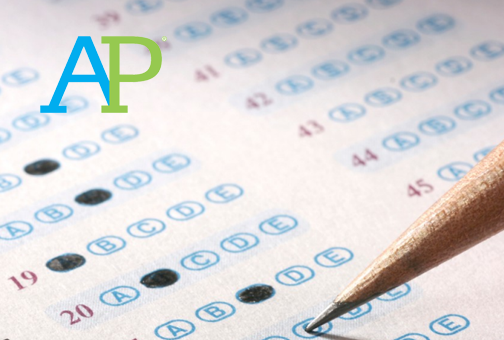Everything you need to know about your upcoming AP tests
*Credit to The Atlantic
By: Jess Cates
The scratch of pencil on paper, the rattle of the air conditioner, the silent tension in the room. The students are taking their AP Exams, nervous and terrified of failure. They anxiously answer the multiple-choice, dreading the free response section. And throughout, they wonder: was there anything they should have known about the test beforehand?
If only there were some way to get info directly from people who have read and graded AP tests. Well look no further, the Torch has interviewed Carrie Loeber, Stephanie Brimacomb, and Kody Engle who teach AP Psychology, AP Lang and Comp, and AP World, respectively.
Loeber says that the most important thing about taking the FRQs is to ensure that you fully understand the prompt before writing your response and answering all portions of it.
Loeber also gave insight into the scoring process, she said that College Board only allows her level of readers to grade one prompt, they are given the prompt a day before scoring and expected to be an expert on the topic.
Engle and Loeber both agree that the College Board gives the student every opportunity to succeed and get as many points as possible with the work they’ve put into it.
“I encourage my people oftentimes to err on the side of the student,” said Engle. “If [the reader] feels like the points are there, they’re there. However, it’s not the reader’s job to infer nor interpret, the student has the explicitly have it on paper.”
Engle was once a table leader in his sixteen years of scoring AP World History exams. A table is a group of people reading over essays from the same prompt, and it's the table leader’s job to ensure each is being scored correctly. They re-read essays that have already been scored, and if they determine that one of the readers made a mistake, they can adjust the student’s score. If a reader scores enough essays incorrectly, they get flagged and have to be retrained.
For both the AP History and the AP Psychology exams, the students are not punished for incorrect information as long as they include enough correct information to earn the point.
Student answering FRQs, credit: US News
“You could say something right and you could say something wrong;” said Loeber, “if the wrong doesn’t directly contradict the right you could still get the point.”
So, if you know enough content and can put it into words, you should be able to do fairly well on your AP exam–provided you can answer some multiple-choice questions correctly.
To help with multiple choice prep, Brimacomb says the best thing to do is to become familiar with the types of distractors they may use.
Multiple Choice Section, credit: The Buzz
Some distractors are: completely wrong, partially correct, too literal, out of context, and meant to trip up students who misread or they use big complex words to confuse the reader. Understanding these distractors will help you take any multiple-choice test.
Another of Mrs. Brim’s tips is to take care of yourself before the exam, not just the night before but a couple of days ahead. Be sure to eat healthy food and stay hydrated!
And with that: good luck with your exams, and thank the AP gods, as Engle says, that they’re curved!


